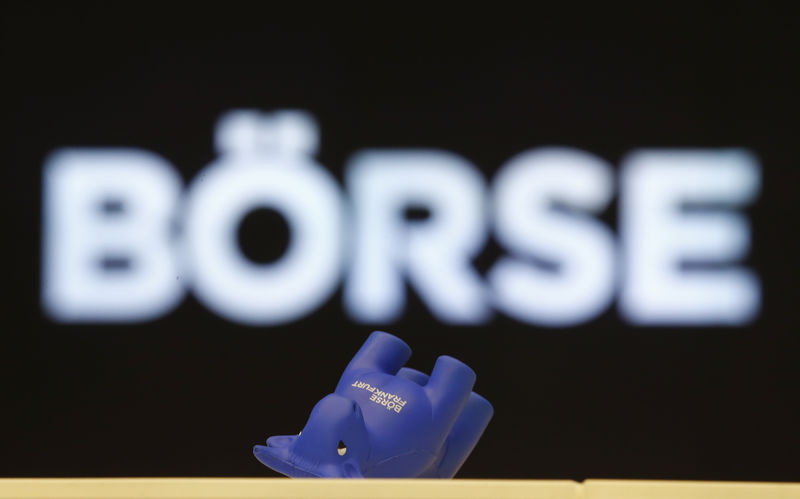This post was originally published on this site
https://i-invdn-com.investing.com/news/LYNXNPEEAD0HK_M.jpg
Investing.com – European stock markets weakened Friday, tracking the declines on Wall Street overnight on fears that central banks will continue their aggressive monetary tightening, while the corporate earnings season continued.
At 03:35 ET (08:35 GMT), the DAX index in Germany traded 1.3% lower, the CAC 40 in France dropped 1.2% and the FTSE 100 in the U.K. fell 0.6%.
The main indices closed sharply lower on Thursday, with the blue chip Dow Jones Industrial Average dropping over 400 points, or 1.3%, after a couple of Fed officials suggested that the recent strong U.S. economic data could point to the U.S. central bank increasing the pace of its interest rate hikes to combat inflation.
Federal Reserve Bank of Cleveland President Loretta Mester said she had seen a “compelling economic case” for rolling out another 50 basis-point hike, and St. Louis President James Bullard said he would not rule out supporting such an increase in March, rather than the quarter-point hike seen earlier this month.
Inflation remains an issue in Europe as well, as although German producer prices fell 1.0% on the month in January, this still represented an annual rise of 17.8%, above the 16.4% expected.
European Central Bank Executive Board member Isabel Schnabel said Friday that investors risk underestimating the persistence of inflation, adding “we may have to act more forcefully.”
Investors had been looking for signs of when these central banks will stop their interest rate hikes, but this hawkish talk has increased worries about the outlook for global growth.
There was some good news though, as U.K. retail sales rose 0.5% on the month in January, a considerable improvement from the previous month’s 1.2% drop and the expected 0.3% fall.
Turning to the corporate sector, Mercedes Benz (ETR:MBGn) stock rose 2.2% after the German automaker reported better-than-expected income in the fourth quarter thanks to a spike in electric vehicle sales.
NatWest Group (LON:NWG) recorded its highest profit since before the global financial crash, but the stock of the 45% state-owned bank slumped over 8% as high profits and a generally rising share price may mean the government divests more of its stake.
Hermes (EPA:HRMS) stock fell 1.6% despite the French luxury design house posting a 22.9% rise in fourth-quarter sales, lifted by brisk business in the United States with the company flagging “sustained” sales in China, despite COVID-19 disruptions.
Oil prices fell Friday, on course for a weekly loss on concerns rising interest rates will cause the U.S. economy, the largest consumer of crude in the world, to fall into recession.
Additionally, the U.S. dollar soared to a six-week high, meaning that oil, which is denominated in dollars, becomes more expensive for foreign buyers.
The crude market has been volatile of late as traders digest the competing impulses of concerns of an economic slowdown in the United States and hopes for a pick-up in demand in China, the world’s top oil importer.
By 03:35 ET, U.S. crude futures fell 2.1% to $76.73 a barrel, while the Brent contract dropped 1.9% to $83.49. Both benchmarks were headed for a weekly decline of more than 2%.
Additionally, gold futures traded 1.3% lower at $1,827.95/oz, while EUR/USD traded 0.3% lower at 1.0640.

